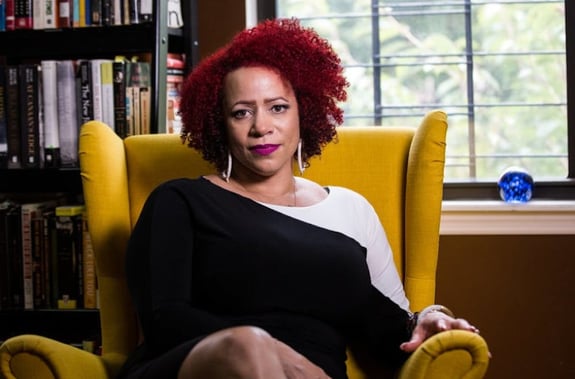New/Mode’s advocacy & civic engagement platform helps…
Key learnings from 21NTC: Expert voices on the issues that matter
At the end of March, New/Mode Campaign Advisor Aaron Brunmeier attended 21NTC, hosted by NTEN. Following a year that saw global upheaval over a pandemic, a necessarily intense spotlight on social injustice, a generation-defining election, and significant collective trauma, it was difficult to know what NTEN was going to do with this year’s Nonprofit Technology Conference. True to form, and to their own commitment to equity, NTEN platformed expert voices on a range of issues that have been amplified over the last year.
Ruha Benjamin is a professor of African American Studies at Princeton University and author of People’s Science: Bodies and Rights on the Stem Cell Frontier (Stanford University Press). She has studied the social dimensions of science, technology, and medicine for over fifteen years and speaks widely on issues of innovation, equity, health, and justice in the U.S. and globally.
Dr Benjamin challenged the “default settings of technology and society” and reminded us that technological innovation does not necessarily equate to progress, especially when that technology is developed within an already biased system by already biased people. Calling this bias the New Jim Code, she explained that anti-Blackness is being coded into the technologies that we use daily, and that some of the technology currently used to redress this imbalance can actually exacerbate injustices and discrimination, and don’t actually address the human root of the problem. Dr Benjamin concluded by reminding us that the power to address these imbalances lies with those developing these technologies, and with users being equipped to recognize imbalances and injustices. She says
“If inequity is woven into the very fabric of society, then each twitch, coil, and code is a chase for us to weave new patterns, practices, politics. Its vastness will be its undoing once we accept that we are pattern makers.”

Nikole Hannah-Jones is a MacArthur Genius for “reshaping national conversations around education reform.” This is but one honor in a growing list: She is the creator of the New York Times Magazine’s “The 1619 Project,” about the history and lasting legacy of American slavery, for which her powerful introductory essay was awarded the Pulitzer Prize for commentary. She’s also won a Peabody, two George Polk awards, and the National Magazine Awards three times.
Nikole led a powerful Q&A session, where she explained that there is an unfair expectation placed on marginalized people to speak out on racial injustice. While amplification of marginalized voices is vital, so too is the need for people with privilege to educate themselves and hold their communities accountable.
Since 21NTC, campaigns of conservative misinformation have targeted Nikole's work and tenure. You can learn more here.

Malkia Devich-Cyril is an award-winning writer and public speaker on issues of digital rights, narrative power, Black liberation and collective grief, as well as the lead founder and former Executive Director of MediaJustice — a national hub boldly advancing racial justice, rights, and dignity in a digital age. After more than 10 years of organizational leadership, Devich-Cyril now serves as a Senior Fellow at Media Justice.
Devich-Cyril spoke on Grief and Grievance in a Digital Age, highlighting the digital divide between demographics and noting that a lack of internet access reflects and reinforces power dynamics in our society. This has led to what Devich-Cyril calls an epidemic of black grief where isolation caused by the digital divide is compounded by other structurally racist systems and the current COVID-19 pandemic. They made the crucial point that neutrality in the face of these injustices is no more a solution than continuing to rely on technologies that exacerbate the digital divide. It is crucial that we actively acknowledge our own biases and assumptions in the building, deployment and use of technology to advance social good.
These speakers went beyond thought-provoking and provided real paths to change and progress, not just in society at large but in the charity and not-for-profit sector itself. For us at New/Mode, the expertise of these speakers can help us shape the way we support campaigners and advocates and reaffirms our commitment to working with causes and organizations that share our values.
There were so many other presentations and opportunities for collaborative problem solving that won’t fit in this one piece. One overall theme and the striking reality presented by all of the keynote speakers is the fact that there are expert voices on the issues that matter and there are unjust, oppressive systems that seek to silence those voices. It is both the privilege and opportunity of campaigners to amplify the voices of the oppressed, and to platform marginalized voices whenever possible. As a community, we have unprecedented access to technologies that can help advance our causes. It is absolutely crucial that we understand how these technologies, while on the surface bridging divides and increasing access, can actually serve to underpin existing inequalities.
To that end, we are looking forward to launching a Listening Tour, a survey and research project looking at the state of advocacy and the issues facing cause-based campaigners right now. Not only do we want to know how we can best support our community, but we also want to provide reports, facilitate discussions, and create content that records how the community can best be supported in this time of recovery, and how we can address injustice and inequity worldwide.
Interested in participating in our Listening Tour? Sign up here and we’ll bring you onboard when we launch.
Sources
Written by


